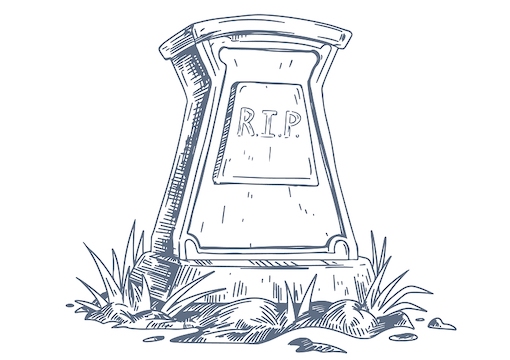
March 31, 2023

Source: Bigstock The most impacting e-mail I ever received was from a prominent theorist of my associate. “All is well,” he composed, “other than that I am dying.”
He was not the kind of man to compose such a thing unless it held true, and he did undoubtedly die three months later on, of cancer. He was a couple of years older than I, and died seven years more youthful than I am as I write this. He died without fuss, in a dignified fashion, as I wish to die; the ars moriendi, the art of passing away, is very little studied nowadays.
Nature does not constantly award durability like a medal for meritorious service. I, for example, have actually not done anything to deserve at least 7 years more of life than my theorist acquaintance, nor did he do anything to be worthy of at least 7 years less. “Why me?” is a question that people who have actually bewared of their health, in specific those who have actually followed the current dietary recommendations (and furthermore imbibed frequently heroic amounts of turmeric, blueberries, fish oil, nuts, broccoli, vitamin C, and so on), ask when struck down, seemingly at random, by some fatal disease. They have actually constantly lived healthily and yet are unjustly assaulted by fatal illness! The only response that can really be given in today state of knowledge to the question of “Why me?” is “Why not?”
“We would feel embarrassed of the outrageous strength of our emotional reaction to something minor by comparison with Dr. Hodges’ problems.”
I have been close to death on a few events, however on the whole have been lucky. There are people who seem to attract misfortune as jam attracts wasps. I have had at least two examples just recently. One was a previous associate of mine who died, again at an age 7 years my junior, whose wife had established rapidly advancing dementia at an early age and whose daughter was mentally disabled. The kid of another associate of mine has just died in his 40s of a 2nd cancer, his first having actually been in early youth. Her hubby had died in his 50s of a brain tumor, and she is left alone.
No doubt there is a typical distribution of good and misfortune of this kind that overlooks desert. Of course, there are those who go out of their way by their inadvisable habits to make themselves ill, however the strictest adherence to health-giving nostra (which, obviously, are accountable to change, according to fashion if not to evidence) does not ensure long survival. Above all, it is advisable, though this can not be arranged by those who might gain from it, to be born to long-lived parents, for durability– and its opposite, sudden death– runs in families. We need to find out to distinguish between what can and can not be altered, for though the frontiers of the unalterable recede slowly, and what once appeared inescapable is so no longer, these frontiers, unlike those of the Schengen Arrangement in Europe, will never entirely cease to exist. Acceptance of what should be borne is as important as not to accept as mere fate an avoidable evil. The problem is in differentiating the avoidable from the inescapable, to do which needs both understanding and knowledge, which are not constantly found together.
Be that as it may, when I come across one of those persons who appear to bring in serial bad luck through no fault of their own (how typically I satisfied them in medical practice!), I felt a strange type of regret, not that I was responsible for any of their misery, however that I continued to complain, sometimes bitterly, of the minor troubles following upon human existence.
Years ago, my better half and I took a trip to Haiti. It was my 2nd time in that awful country, and though it had appeared rarely possible to me during my first go to, basic conditions had actually deteriorated in the meantime. By all accounts, they are considerably even worse now.
On my first check out, I satisfied an American missionary medical professional, Dr. William Hodges, who was also an amateur but accomplished archaeologist who, to name a few things, had discovered an early landing site of the Spaniards on Hispaniola, and had founded a small museum of early artifacts. Dr. Hodges had devoted his life to Haiti.
I had actually shown up at his mission unwanted and unannounced, however he and his family used me generous hospitality, and the next early morning, Dr. Hodges showed me round the museum. On my second journey to Haiti, I believed it would be an excellent idea to visit him once again.
It was not a great concept. Dr. Hodges, now 70 years of age, had intended to retire, however so desperate was need now that we found him surrounded by hundreds of clients, from whom he was attempting to choose those in the majority of urgent requirement of attention. Our arrival was an undesirable invasion, and we retired from the scene, rather humiliated by our own levity.
Dr. Hodges looked completely, chronically tired by his work, gray under the tropical sun, and, alas, had shortly to live, passing away of a cardiac arrest I assume caused by overwork at a sophisticated age (though less sophisticated than mine now).
I did not share his spiritual convictions, but I admired his work and his self-sacrifice, and I was outraged when I read in a book about Haiti a casual accusation that he was an American representative. How easy it is for those who do not sacrifice anything for the sake of others to accuse those who do so of ulterior motives!
When we returned from Haiti to resume our regular lives, my better half and I would say to each other, “Remember Dr. Hodges!” when we were faced with some annoying little problem. This would put the matter into viewpoint for a minute, and we would feel embarrassed of the absurd strength of our psychological action to something unimportant by contrast with Dr. Hodges’ issues. Though remembering him had a salutary result, it lasted just a moment and there would always be a next time when we would need to remember Dr. Hodges all over again.
It is hard– difficult would most likely be a more precise method of putting it– to be constantly counting one’s true blessings, however excellent they may be. Nonetheless, it is very important to attempt to do so at least intermittently, or else one would forget them altogether and succumb to self-pity, one of the couple of feelings that can, and often does, last a lifetime.
Theodore Dalrymple’s most current book is Ramses: A Memoir, released by New English Review.

